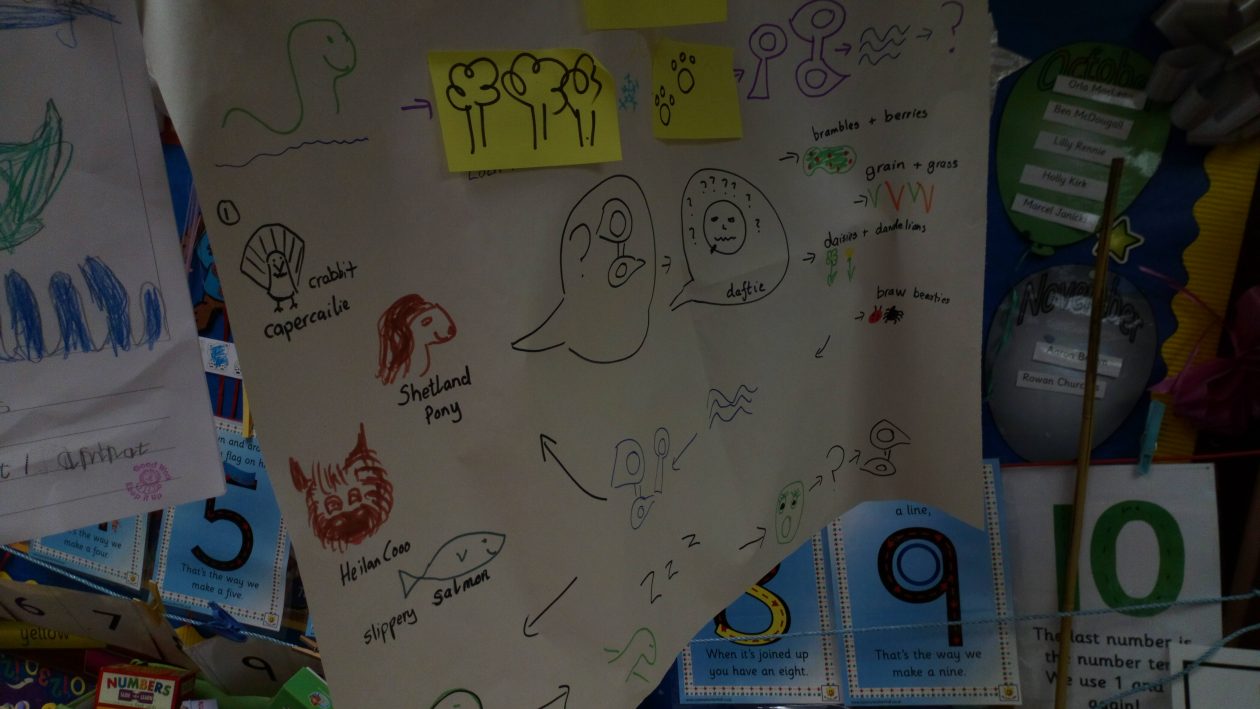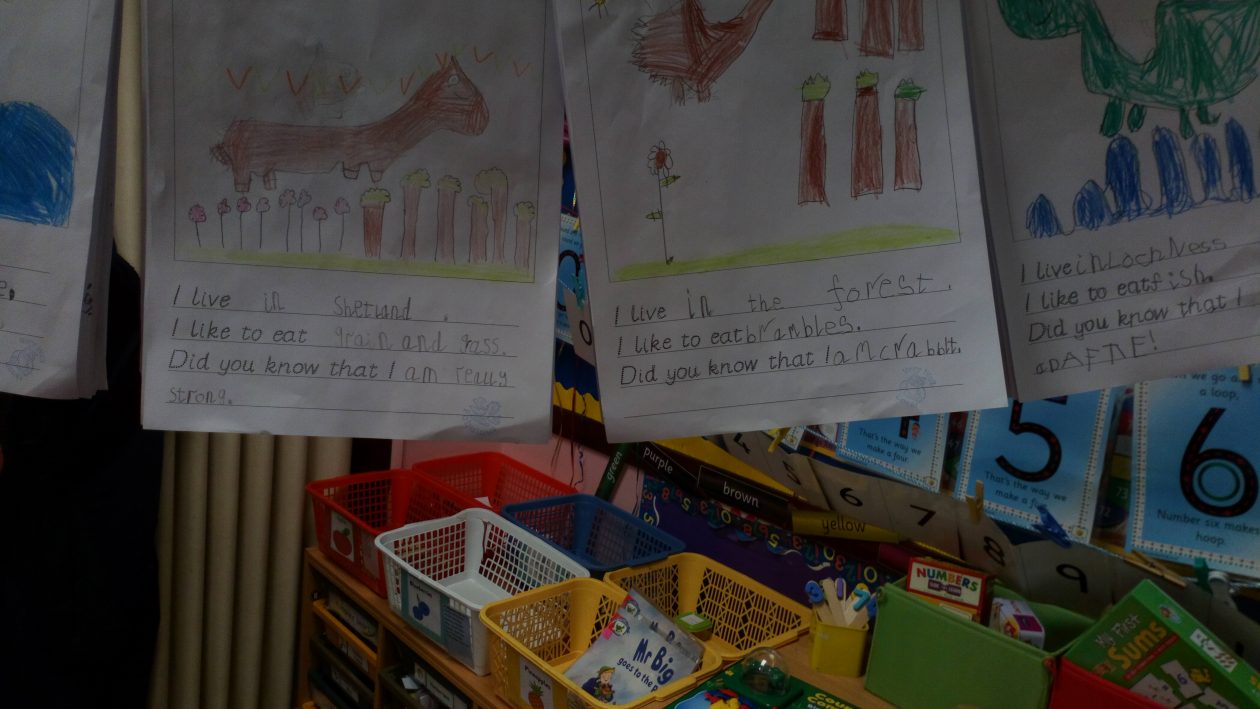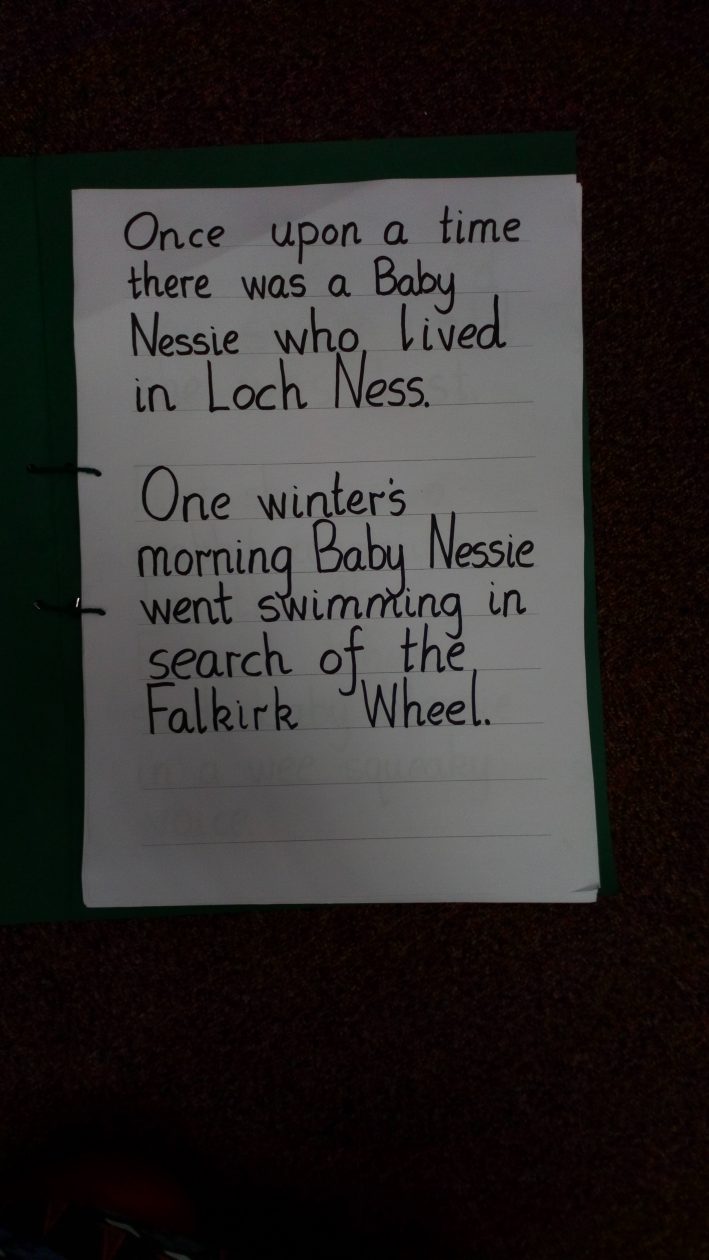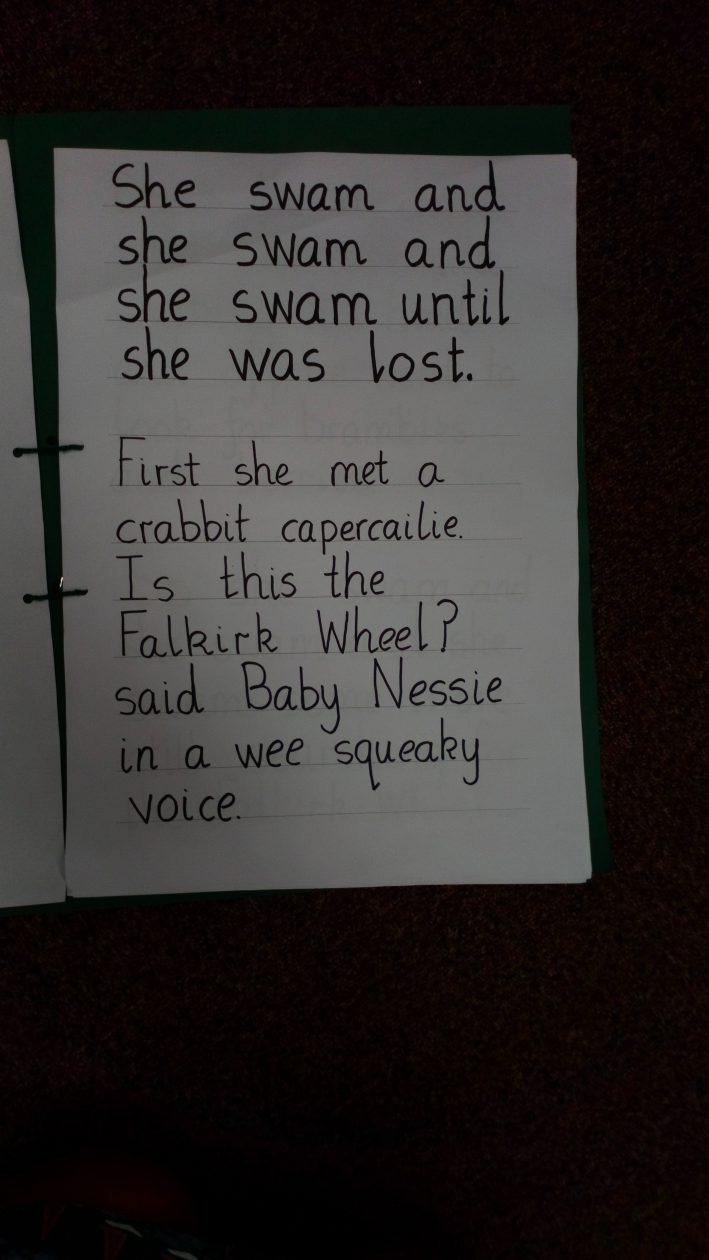
Amanda Gardner and Brenda Bennie teach primary 1 pupils at Denny PS and are working together on their adoption of a play-based approach to teaching and learning this session. Amanda and Brenda are very well supported by their senior leaders in school, and shared their experience so far with Falkirk practitioners at a recent professional learning opportunity.
The classroom dimensions, space and layout were initially challenging, but Amanda and Brenda have gradually developed three learning spaces: their Sunflower Room, Poppy Pod and Thistle Rooms. Adopting this approach to learning has required both teachers to continually re-assess and reflect on their teaching practices and they described how the weekly involvement of an early years officer has been pivotal to their success so far.
Amanda and Brenda have broad-banded their pupils for literacy and numeracy – block 1 of each day is devoted to pupil literacy development with block 2 for numeracy. They are trialling a resource/approach called Talk for Writing, and Yvonne McBlain, (curriculum support teacher with responsibility for supporting literacy across learning) wrote this post to share information about how pupils were responding to this approach.

Talk for Writing is a commercial resource which a small number of Falkirk schools are using, and was developed and produced by Pie Corbett in collaboration with Julia Strong – click here to read more. It is a developmental approach based on research which demonstrated powerful impact on pupil attainment in writing via initial focus on talking and listening. By engaging with the sounds and patterns of spoken/heard texts (fiction or non-fiction), pupil familiarity develops, the teacher and pupils create a text map – devising and using pictures/symbols and actions to tell the story of the text until they know it and can tell/show it by heart. This multi-sensory approach to understanding and sequencing texts builds children’s cognitive pathways – gradually freeing cognitive space for them to develop their own writing skills. Through imitation of the structures and patterns of these known texts in their own writing, pupils can then innovate and move towards independent writing and extended writing. They become competent at analysing texts by reading them as readers AND as writers – evaluating and analysing the structure and content so that they can adopt and adapt valuable strategies in their own writing across the curriculum.
Amanda and Brenda are closely monitoring the positive impact of the Talk for Writing approach so far, but feel that it fits very well within their play-based, child-led pedagogy. They have built in opportunities every Friday to gather and reflect on their pupils’ feedback on their learning and to celebrate progress and achievements. The short story below is the text which is currently being explored and developed in class and is linked to a Scottish context or focus.



